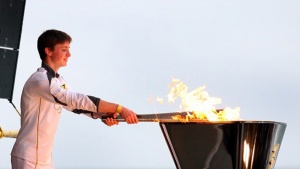Rio 2016 Olympic Games organisers pass on knowledge to Tokyo 2020

Three months after the “marvellous” Olympic Games Rio 2016, the organisers were in the future host city of Tokyo this week to pass on their experiences.
Representatives of the Tokyo 2020, PyeongChang 2018 and Beijing 2022 Organising Committees and the 2024 Candidate Cities were also there to listen, as well as to learn the lessons from their experiences.
Reflecting on outstanding sport, a unique journey and a strong legacy for the city and country, the Rio 2016 team generously shared their knowledge and experience of an event that will allow the Olympic Movement to build on its momentum.
Tokyo 2020 organisers were able to benefit from this significant exchange of information to clarify their plans, as they look to the future and 2020.
The three-day International Olympic Committee Debriefing Olympic Games Rio 2016 gathered together some 600 participants, including a Brazilian delegation led by Rio de Janeiro’s mayor, Eduardo Paes, and Rio 2016 Organising Committee president Carlos Arthur Nuzman.
ADVERTISEMENT
Numerous constructive discussions and exchanges of good practices between participants were generated both inside and outside the meetings by the successes and legacy of Rio 2016.
“The IOC Debriefing event closes a journey of more than nine years that led Rio to not only host superb Olympic Games, but also transform itself completely,” said the IOC coordination commission chair, Nawal El Moutawakel.
She continued: “The Olympic Games Rio 2016 became a catalyst for urban development, which has spurred investment in Rio that would otherwise not have happened.
“The improvements in the city’s infrastructure are a good example.
“In just seven years, the number of people with access to good quality public transport increased from just 18 per cent in 2009, when Rio was elected, to 63 per cent in 2016.
“There are now four new rapid bus lines, a better rail service and a new light rail system, as well as improved airports.”
El Moutawakel continued: “This transformation goes beyond infrastructure.
“The Games have prompted a number of sporting and social development projects that the IOC is still actively supporting as part of its overall engagement and as part of the Olympic legacy.
For most organisers, staging the Olympic Games is a one-time experience, something that they start without having delivered one before.
The goal of the IOC Debriefing Olympic Games Rio 2016 was to share knowledge just a few months after the Games, when the contributors have had the chance to reflect on their experience.
This format has proven to be immensely valuable, as cities are able to hear about the experiences of their peers and relate it back to their own context – gaining in the process a valuable point of view from colleagues who have been through the same process and faced similar challenges.
The process doesn’t stop here though, as these three days will be followed up with specialised workshops over the course of 2017, which will give future organisers the opportunity to go more into the technical details relevant to them.
Tokyo 2020 president Yoshiro Mori said that the Japanese capital would certainly draw inspiration from the 2016 Games: “The three days of the IOC
Debriefing of the Olympic Games Rio 2016 were a great opportunity for all of the participants to learn from everyone’s knowledge and experience acquire through the Rio 2016 Games.
“It was also a valuable opportunity for us at the Tokyo 2020 Organising Committee to discuss key learnings of the Games with our counterparts from Rio 2016 and everyone involved.
“I am very happy with the high level of engagement that was seen throughout the panel sessions, as well as individual meetings.
“I’d like to thank the IOC, the IPC, the international sport community and all the other participants for travelling to Japan and contributing to the success of the event,” he said.

